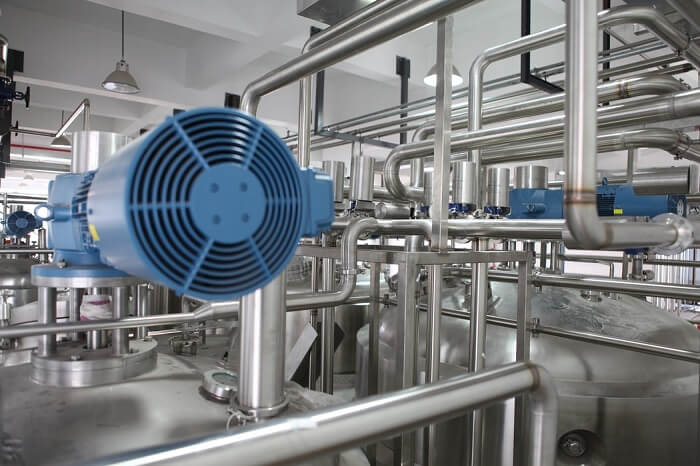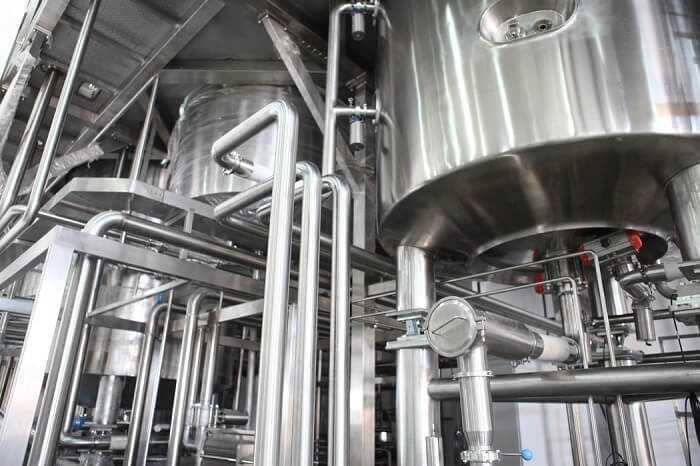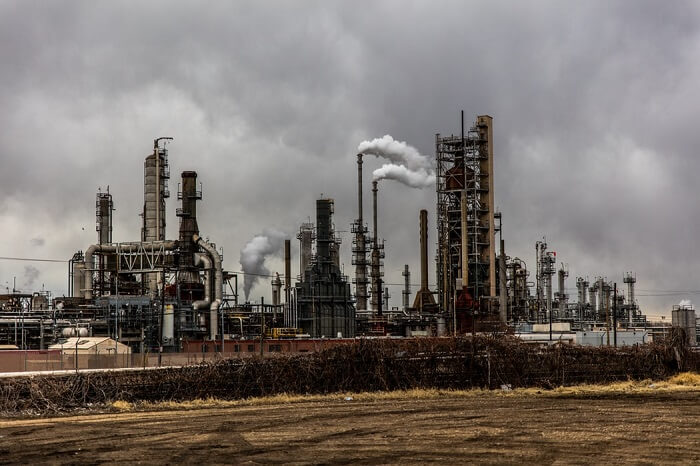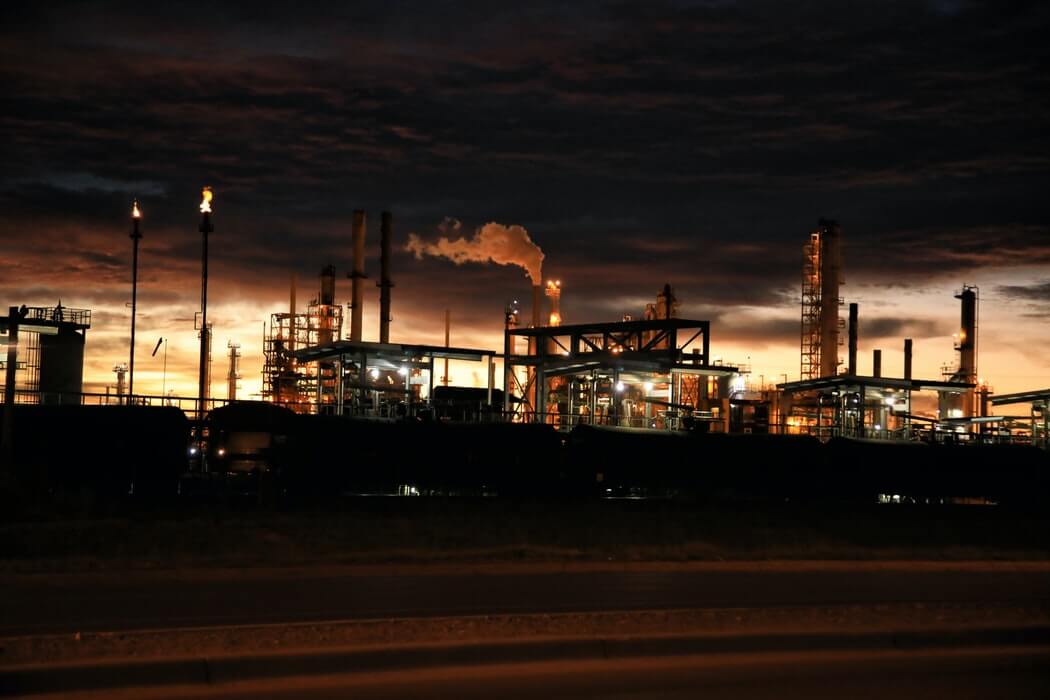Process heating is an integral part of any manufacturing industry. Whether it is for generating steam or melting and joining metals to form alloys, plants use industrial heaters in some form or the other. Industrial heaters convert energy from fuel or other sources into heat. This thermal energy then passes to the system through the heat transfer process. Industrial heaters use any of the following three fundamental methods of heat transfer:
- Conduction: Solid object molecules transfer their energy to the adjoining molecules through vibration at higher frequencies.
- Convection: Thermal energy carries through a fluid or a medium in the form of a convection current that can be either free-flowing or forced.
- Radiation: Indirect heat transfer through electromagnetic waves without any physical contact between the heat source and the substance.

1. Types of Industrial Heaters:
Industrial heaters like thermal oil heaters are available in various shapes, sizes, form-factors, ratings, configurations, etc. We can classify them based on their applications, physical properties, fuel sources, mediums, and so on as below:
A. Application:
- Duct Heaters: Installed in the moving streams of air or gas. The air or gas gets heated as it moves through the heater.
- Circulation Heaters: Used to heat flowing or circulating fluid streams as they circulate through it.
- Strip Heaters: A flat heating device mounted on the surface to heat either the surface itself or the surrounding air.
- Ring Heaters: Specially designed strip heaters in a circular shape that are used to heat round shapes like molds, tanks, flasks, etc.
- Rope or Band Heaters: Flexible heaters that can wrap around pipes, tubes, and other surfaces.
- Space Heaters: Portable heaters designed to heat closed areas or rooms by radiation.
- Immersion Heaters: Heat the substance by inserting the heater rod into it.
- Over-the-side Heaters: Economic, flexible heaters with a water-resistant body mainly used for heating fluids by inserting through the top in tanks or containers.
- Screw-plug Heaters: Type of immersion heaters for small-scale applications that are versatile and easy to install.
- Flexible Heaters: Can be molded to take the form of the material being heated.
- Explosion Proof Heaters: Contain housing for the substance being heated to withstand explosions, flames, or sparks.
B. Fuel Source:
- Electric Heaters: Electric current passes through a high-resistance material and generates heat.
- Oil Heaters: Consists of metal columns that contain a cavity and heating element and burn liquid petroleum products.
- Solid Heaters: Use conventional fuels like coal, wood, etc., to produce heat.
- Gas Heaters: Use gases like propane, liquefied natural gas, etc., to generate heat.
C. Medium:
- Water Heaters
- Air Heaters

2. Features of Industrial Heaters:
Now that you understand the heat transfer process and classification of industrial heater elements, let’s discuss their distinguishing features. These features define the configuration and operation of industrial heaters and help you select the best one for your process heating requirements.
- Heating Capacity: Usually specified in kilowatts, heating capacity defines how much thermal energy the heater can deliver in a period. It depends on the mass of the fluid, its specific heat capacity, change in temperature, and time taken to attain the temperature.
- Maximum Operating Temperature: Perhaps the most important specification while selecting an industrial heater, maximum operating temperature, is the rated temperature of the heating element. Material properties and heater design affect the maximum temperature a heater element can attain.
- Pressure Rating: Maximum operating pressure at which the water, oil, or fluid heaters can be operated.
- Maximum Air Flow: Maximum airflow is crucial for all air heaters and defines the total volume that it can heat. Airflow dictates the maximum temperature a heater can attain and how long it can maintain a specific temperature.
- Watt Density: Most of the electrical heaters use an AC source in either single-phase or three-phase operation. In electrical heaters, watt density is the main feature that specifies how quickly it can transfer heat to the process and must be selected properly. Very high values of watt density might result in premature heater failure and damage the material being heated. On the other hand, lower values of watt density increase the cost of the heater.
- Sleeve (Sheath) Material: Most heaters use sleeves that protect and cover the heating elements. From metals to alloys, from rubbers to polymers, there are several choices for sheath material based on the application.
- RoHS Compliance: Effective from July 2006 onwards, Restriction of Hazardous Substances (RoHS) is an EU directive that mandates all electronics and electrical equipment to contain minimal levels of hazardous materials like lead, mercury, cadmium, etc.
- WEEE Compliance: Waste Electrical and Electronics Equipment (WEEE) is another EU directive that encourages recycling, reuse, and recovery to minimize the environmental impact.

3. Industrial Heater Applications:
Application areas of industrial heaters are endless. Here are some of the key applications industries that utilize them in some form or the other:
- Chemical Industries
- Petroleum
- Water Treatment
- Oil & Gas Industry
- Nuclear Power Plants
- HVAC Systems
- Food and beverage industry
- Plasma Heating Furnaces
- Industrial Ovens
- Steam Generation
- Road Construction
- Biomass Dryers
- Asphalt Industry
- Textile Plants
Industrial Heaters for Your every requirement:
Bozzler Energy Pvt. Ltd. (BEPL) is a leading industrial heater manufacturer in India driven by a group of passionate people. Our experienced and well-trained professional team excels in Machine Design for Industrial Applications with social responsibilities. At BEPL, we thrive to offer efficient and eco-friendly process heating equipment solutions for modern industry. Rather than just being a manufacturer or a supplier, we take pride in understanding your unique requirements and come up with custom solutions. Partner with us for all your industrial heater requirements and gain from our years of experience and technical expertise.


Leave A Comment